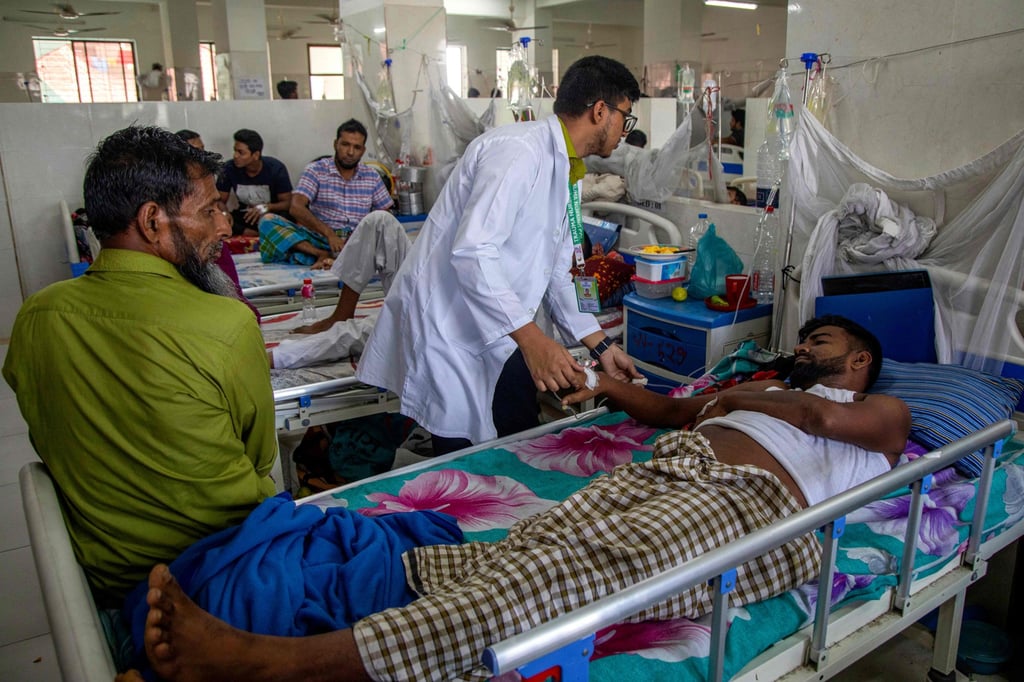Bangladesh is battling its worst outbreak of dengue fever in years, with more than 400 deaths as rising temperatures and a longer monsoon season drive a surge in infections, leaving hospitals struggling to cope, particularly in urban areas.
At least 407 people have died from related complications in 2024, with 78,595 patients admitted to hospitals nationwide, the latest official figures show.
By mid-November, 4,173 patients were being treated, with 1,835 of them in Dhaka, the capital, and 2,338 elsewhere.

“We’re witnessing monsoon-like rainfall even in October, which is unusual,” said Kabirul Bashar, a zoology professor at Jahangirnagar University.
Shifting weather patterns caused by climate change provided optimal conditions for the Aedes aegypti mosquito, the primary carrier of the disease, he added.
“These changes in the season are fostering ideal conditions for the mosquitoes to breed.”
Dense populations in cities exacerbate the spread of the disease, usually more common in the monsoon season from June to September though it has spilled beyond that window this year.








